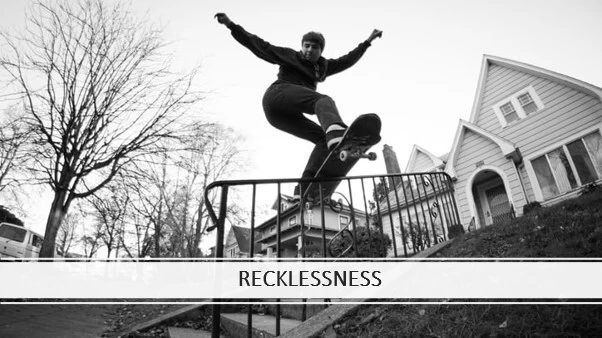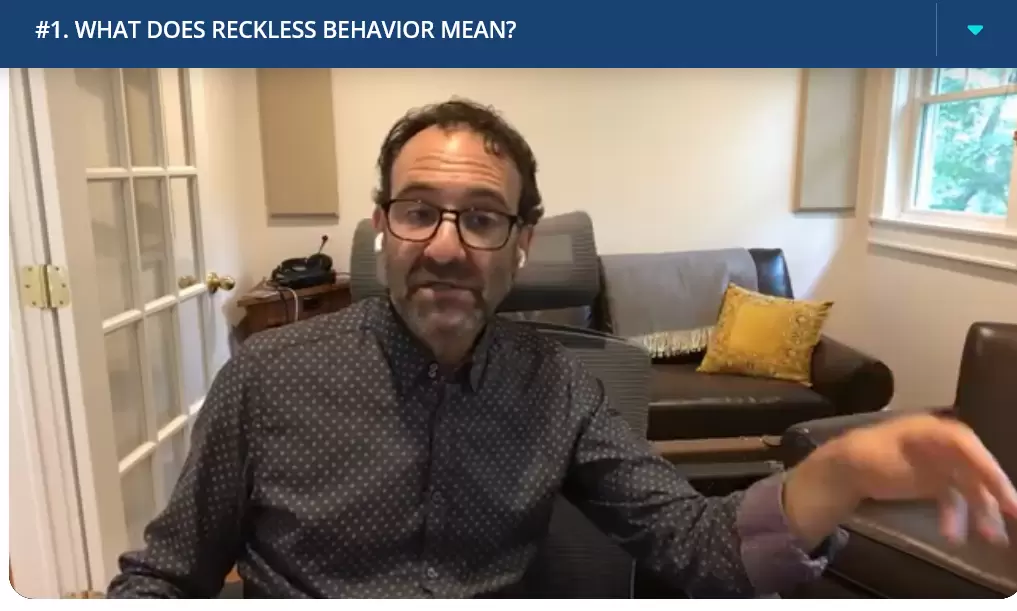
SOME EXAMPLES OF RECKLESS BEHAVIOUR INCLUDES:
- Unprotected sex and promiscuity
- Reckless driving
- Tobacco, alcohol, or substance abuse
- Disregarding public safety, like ignoring pandemic protocols
- Running away from home
- Self-harming behaviors, like cutting or burning
- “Sexting,” posting inappropriate videos online, or other risky acts on social media
- Getting into trouble (vandalism, talking back, starting fights, other forms of delinquency)
Not all risk-taking behaviors are reckless. Taking risks is a part of life and can even be healthy. For example, you might take a risk by moving to a new town for a job opportunity or risk rejection when asking someone out on a date.
Risks like these are often thought out and calculated. You can weigh the pros and cons of moving out of your hometown for a new job or attending college. While you are taking a risk, you are able to execute some decision-making skills before moving forward.
RISKS ARE CONSIDERED DANGEROUS WHEN THE POTENTIAL CONSEQUENCES ARE CONSIDERED SEVERE, DEADLY OR DANGEROUS
Try some of the following to prevent reckless behaviors from occurring:
- Get your child involved in a hobby or other activity where they can make connections with other like-minded individuals.
- Create a structure and routine at home, so your teen knows what to expect and what is expected of them.
- Spend time with your teen talking and building a relationship so you know what is going on in their lives.
- Be a role model for healthy behaviors, self-care, and ways to manage stress.
- Talk to your teen about safe sex, alcohol and drug use, and other issues so that you know they are well-informed to make the best decisions for themselves.
- Teach your child what values to look for in a friend and know who your teen’s friends are. You can connect with your child’s parents to understand the values your child’s friends might have adopted from their parents.
